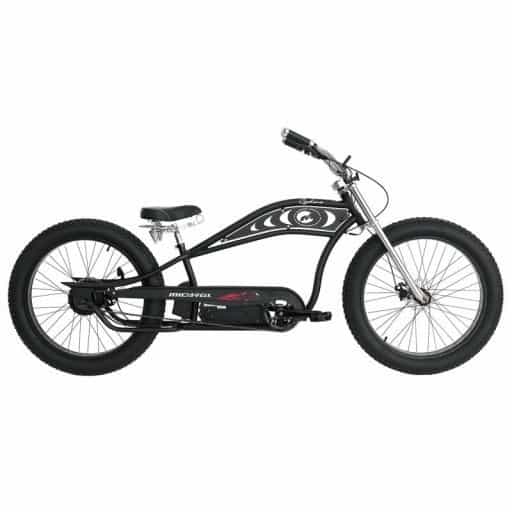
A great way to get around your neighborhood or ride to work on electric trikes, they also make great gifts. They are lighter than traditional trikes but they can be used on a variety of terrains.
Here are some things to keep in mind when selecting the best electric trike to suit your needs. It is important to choose a trike with a long battery life, a powerful motor, and decent power. You also want to find a model that has a decent LCD screen, as this will allow you to monitor the battery's usage.
A good electric trike has a comfortable and simple to maneuver. The frames are made of high-carbon steel that is durable and provide a smooth ride. Pedaling is required to use the trike, and the handlebars are adjustable for an ergonomic position.

A good trike should have a strong motor, a long-lasting lithium battery, and a low step through frame. The amount of maintenance needed will also be important. This will influence how often you need parts. A stronger motor will be more useful if you intend on towing heavy stuff on your trike. The battery pack can be charged up to 25 times before it needs to be recharged.
It is also crucial to have the brakes on a trike. Disc brakes are much more responsive than hydraulic. For slippage prevention, make sure you choose a model that has anti-slip tires. You should also check the safety features. You'll also need a trike that has a large basket to carry groceries or other items.
The best feature of an electrical trike is undoubtedly its battery. You should be able to travel at least 20 miles using a lithium-ion pack. This will mean that you won't need to charge the trike every time you go. This can all be done in about three to four minutes.
BlueTooth speakers, another cool feature that electric trikes have, are also available. This allows you play music and can be used with your smartphone. The rear bucket can also hold a tool kit.

There are many electric trikes to choose from. Each is designed for a different purpose. Decide how much mileage you plan to cover and whether you need a bike that is lightweight and can carry a lot. You'll also need to check out the price. The best model should be able meet all your requirements for a reasonable price.
The best electric bicycles will be able to provide all the features you need and fulfill your needs. While it may not be the most affordable model on the market for electric trikes, it should have the best quality components and be the most innovative.
FAQ
What qualifications does a truck mechanic need?
You don't have formal qualifications for this role, but you are very experienced working on trucks and engines. Your knowledge is valuable as you are able to quickly diagnose problems and work efficiently.
A solid understanding of diesel technology is also a plus. This will help you understand the components that are needed to fix our vehicles.
Is it important which college I go?
No, not really. There's no difference between colleges regarding getting into the automotive industry. There are some schools that offer more specific programs than others.
Are you a mechanic or a technician? Can I study part time?
While a degree is not required, it does help. Employers prefer applicants who have completed a full-time degree. This shows you have put in the work and achieved success.
But, this doesn't mean you have to stop working while studying. Many universities permit students to take courses during the summer holidays, and then finish their studies in the fall. Some universities allow students to take part-time classes throughout the year.
What is the difference between an automotive technician and a mechanic?
Although they may be similar, they are not identical. Both a mechanic and an automotive technician can repair cars.
A mechanic should be able to do simple tasks quickly and have good manual dexterity. They should also be able correctly diagnose and repair any problems.
An automotive technician needs to be more technically skilled than a mechanic. They should be able read blueprints and use tools like drills and wrenches.
They should be able safely to perform complex procedures. They must also be familiarized in different types and electrical systems.
They must also be able comprehend how the various parts interrelate with one another.
As a result, mechanics typically make less than technicians. Both jobs offer many possibilities.
Statistics
- 52% of Mechanics in the United States think their salaries are enough for the cost of living in their area. (indeed.com)
- Apprentice mechanics earn significantly less hourly than mechanics who have completed training, with a median wage of approximately $14.50 an hour, according to PayScale. (jobhero.com)
- According to the BLS, the median annual salary for automotive service technicians and mechanics in the United States was $44,050 in May 2020. (uti.edu)
External Links
How To
How to Become an Auto Technician
An automotive technician performs repairs and maintains vehicles. He/she works at automotive shops, garages or service centers. He/she repairs cars, trucks, motorbikes and snowmobiles for customers. An automotive technician must be able to diagnose problems and make repairs quickly, safely, accurately, and efficiently.
If you want to be an automotive technician, you need an associate degree from vocational school. After completing this program, he/she will need to pass the National Institute for Automotive Service Excellence's (ASE) certification exam. ASE stands to American Society of Mechanical Engineers. Two sections make up the ASE certification examination. One section tests knowledge of mechanical components, while the other section tests skills in practical areas. To pass the test you must go to one of the authorized testing facilities. These testing sites can be found online and through your local dealer.
A candidate must pass the state exam after passing the test to become an automotive technician. This process varies depending on where the applicant lives. For example, some states require candidates to attend a training course, while others allow them to study independently. Some states allow technicians to become licensed right away after receiving their license. While others wait until they have had at least six years of experience as an automotive technician.
An applicant should apply to a local auto shop in order to start their career as an automotive technician. Most new employees begin as apprentices once they are hired. Apprenticeship programs last about three years. During this time, a student learns how to perform basic repairs, such as changing oil, adjusting brakes, replacing tires, cleaning spark plugs, inspecting engine compartments, and performing routine maintenance. Some students are able to perform more advanced repairs such as replacing shocks and installing air filters. Many schools offer classes during regular hours. Some schools also offer evening classes when needed.
Once a student is done with his/her apprenticeship he/she can become a master journeyman. Journeymen can spend up to five years learning how major systems work, including transmissions, differentials. They also learn how to adjust steering gear and suspensions. They also learn to perform complex repairs, such as remanufacturing engines, rebuilding transmissions, and troubleshooting electrical components. Many employers prefer hiring journeymen because they know the job well and understand what the customer expects.
Once a candidate passes the required exams and is granted a license, they might consider opening their own shop. According to the Bureau of Labor Statistics, nearly 1.7 million automotive mechanic jobs were available in 2010. That number was expected to grow by 18 percent from 2009 to 2020. If a candidate decides to open his/her own shop, he/she should prepare to invest many thousands of dollars in equipment and supplies.
Many factors affect the automotive technician's salary, including location, education, experience, and employer type. A jobless person could make an average of $20,000 annually. Someone who has only a highschool diploma could earn around 21,000 dollars per year. Those with an associate's degree earned approximately $24,000 per year. Technicians with a bachelor's degree earn about $27,000 per annum. Master's degree holders make around $32,000 annually. Salaries are increasing so that a professional earning less than $30,000 could expect to make $40,000 in a few years.